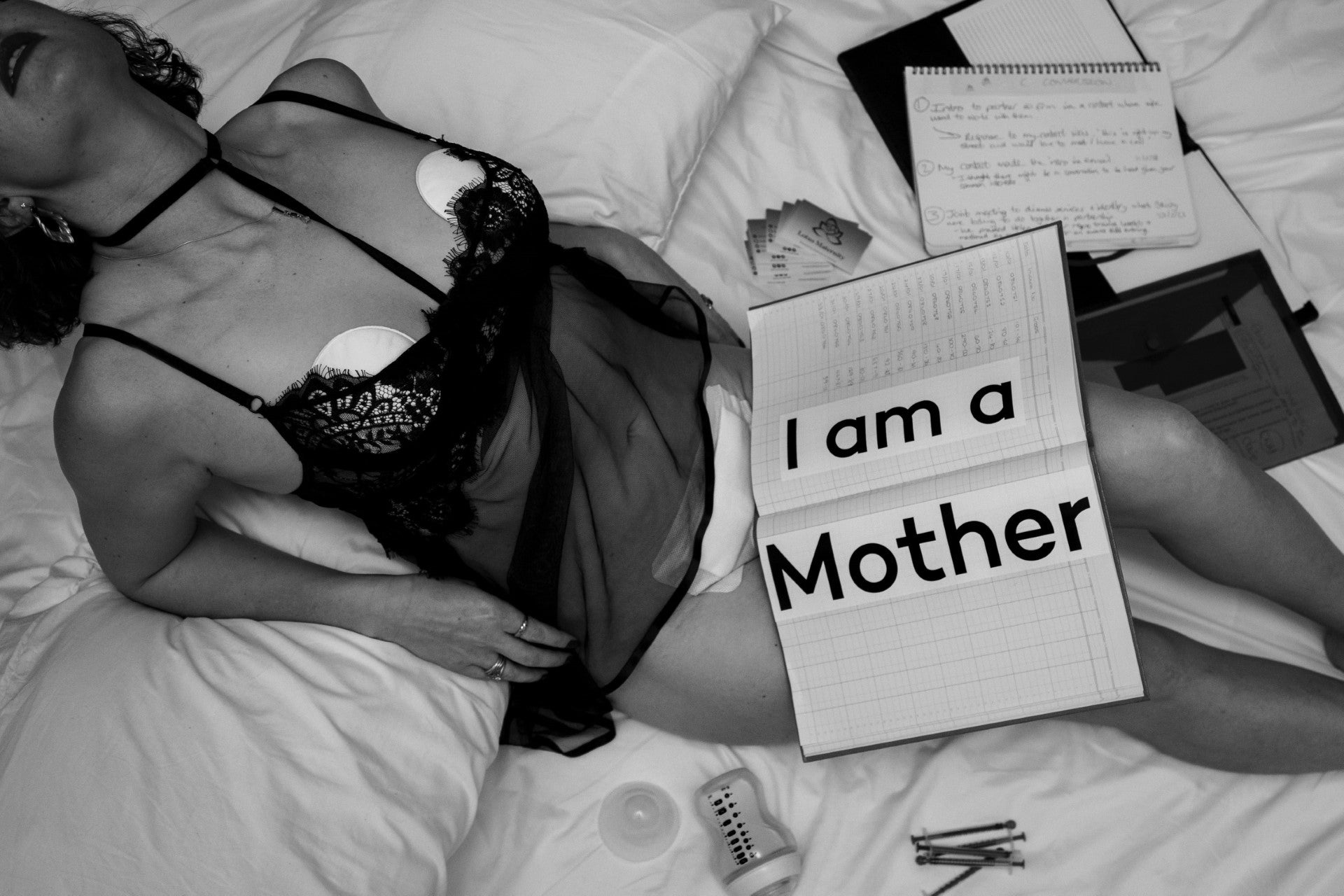Why I posed for shocking, risqué photos to get people talking about postnatal care
I’ve been exposed to many unexpected things in my career as a midwife, but posing for photos in the middle of an empty office clad only in a bra and breast pads was new, even for me, writes Olivia Swift


Our society puts the burden of raising the next generation on the shoulders of a single woman and renders it our role, as midwives, to care. Yet with more than 500 midwives and nursing staff leaving our profession each week because of the strain they are under – and women continuing to have babies – the numbers do not (and cannot) work.
I used to open my postnatal support classes with anecdotes about positive birth stories, overwhelmed with joy recalling how amazing it was to empower women to have incredible experiences of birth. I stopped asking this question two years ago, as my clients couldn’t relate to “natural” childbirth.
I’d pan the room, seeing a series of shellshocked faces instead. Their joy, replaced with tears of trauma, on the verge of breaking down.
My sister is pregnant again, with promises of a home birth service. But my best advice to someone in my family who I love? “Manage your expectations”. This is my consistent message, since I know we sadly lack the staff in this country to facilitate the birth she wants.
Listening to the woes of the women I support, struggling with the consequences of birth, it became apparent that my duty of care was to begin advocating for these mothers. Yet while I’ve been exposed to many unexpected things in my career as a midwife, posing for photos in the middle of an empty office clad only in a bra and breast pads was new, even for me.

Still, I took these drastic measures as part of my new campaign, Campaign M, which aims to highlight the increasingly ignored psychological and physical effects on women after birth.
If you can’t take on the system yourself, you have to look for means to operate outside of it. I want to advocate for mothers beyond maternity care, to hammer the message that we are all responsible for “mothering the mother”.
Seeking allies, I started to train local organisations on how they could better support their employees returning from parental leave, moving away from the idea of maternity leave being a “holiday”. The level of ignorance on postnatal health issues quickly became abundantly clear.
Said issues were underground, kept hush hush, following the British mantra of “not hanging your dirty washing out”.
But how could I train organisations to support their employees when they didn’t recognise the issues that need supporting? I wanted to blow the lid off, to spotlight both the physical and psychological problems involved with birth and raise awareness so women can demand better provisions.
I wanted conversations, not whispers. I wanted a loud, drastic approach to get attention comparable to the numbers of women and families affected. To begin removing stigma, to support women to speak out and get the help they need. To ultimately improve health and wellbeing, alongside reconditioning attitudes, with a particular emphasis on how painful, difficult, and unpleasurable motherhood can be for many.
Starting Campaign M – which took the form of a series of provocative posts shared over a number of weeks on Linkedin – did that.

I wasn’t entirely comfortable posing for these shots, but it was worth it to open up this conversation. The biggest killer of women in the first year following childbirth is suicide. Yet we focus all our efforts on reaching the end “product”, supporting women to have healthy pregnancies with the desired outcome of a healthy baby.
Birth is not the finish line, yet a mother’s needs following the grand finale often become forgotten. Some finale – with childbirth increasingly becoming the most traumatic it’s ever been. Induction rates are skyrocketing with the over medicalization of childbirth contributing to one in three women now suffering birth trauma. Just last month, parliament closed its first ever inquiry into birth trauma.
The ideologies of pleasant scenes from Call The Midwife are very far removed from modern midwife care. Mothers are struggling, they are being failed because of chronic understaffing and increasing complex care adding extra pressures to maternity services.
Campaign M is a guerrilla campaign, it’s designed to be unconventional. I opted for a racy theme, designed to stop the scroll and capture attention given the ultra-professional medium in which we published. I’m also a midwife and without sex my profession would be obsolete. So, no. I wasn’t worried about provocation. It not only fit well, but provided opportunities for discussion, even if the conversations began, “oh my goodness can you believe she posted that photo?!”.
I am so tired of “traditional” postnatal support for mothers. I am tired of being at corporate events and when asked what I was discussing, having men recoil when I replied “vaginal prolapse”.
I am tired of my lived experience of walking onto the postnatal ward, with our sister hospital closed: the labour ward is often full, so we receive calls to send staff instead to the delivery suite.
I’m tired of my own reactions: of breathing a covert sigh of relief when I see most of the ward are artificially feeding, meaning there’s less demand for breastfeeding support; or the sense of relief I feel when elective caesareans are cancelled due to maternity theatres being full.
We’re all running on empty, or burnt-out, constantly questioning how a single pair of hands can cope with more and more mothers in bed wondering “where the midwife is”.
Assisting women’s recoveries carries little weight when the waiting list for inductions of labour seems infinite. So, yes – my idea to raise awareness of the problem might be shocking, but the problems are not. They’re sadly all too commonplace.
Join our commenting forum
Join thought-provoking conversations, follow other Independent readers and see their replies
Comments